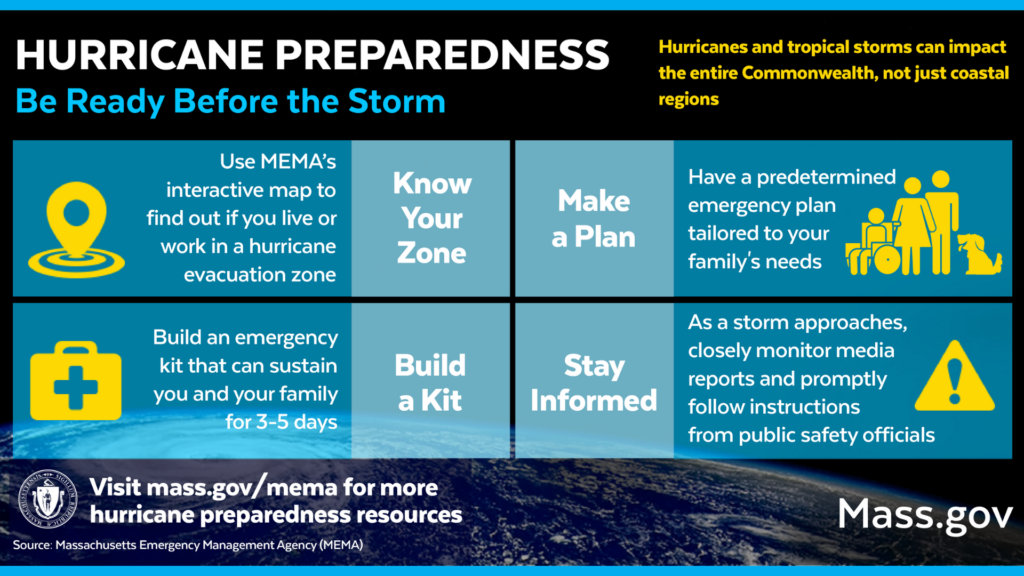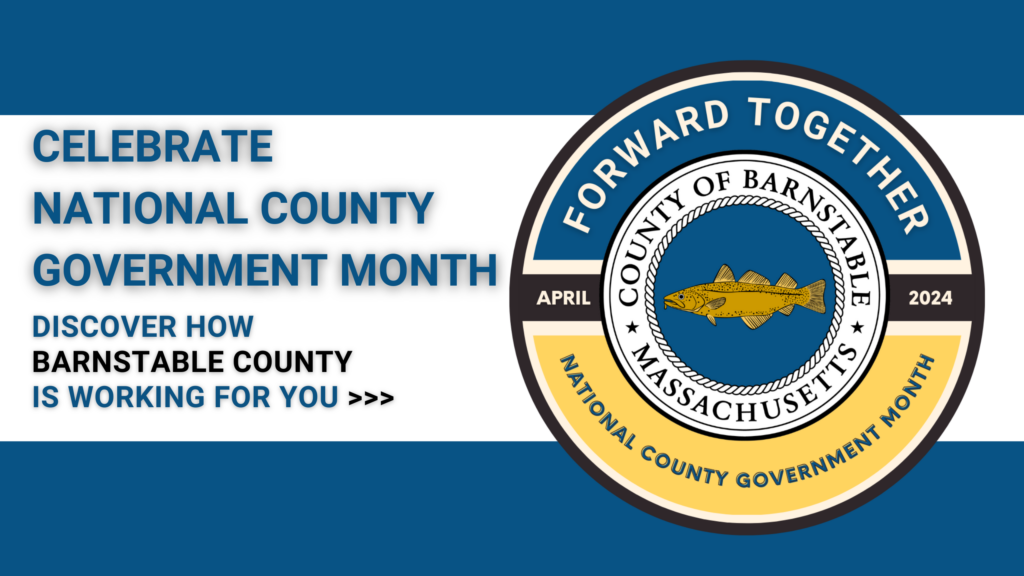
Atlantic Hurricane runs now through end of November: Be prepared!
June 1st marked the official start of the Atlantic Hurricane Season, which runs through November 30th. While most hurricanes and tropical storms that have hit New England occurred during August and September, residents are encouraged to take time now to begin preparing before a storm.

The beginning of hurricane season is a timely reminder for all residents to prepare for the effects of a hurricane by learning if you live in a hurricane evacuation zone, developing an emergency plan, building an emergency kit, and staying informed before, during, and after the storm.
Hurricanes and tropical storms can have an impact on the entire Commonwealth, not just coastal communities. All Massachusetts residents need to prepare for the possibility of storm impacts – to learn more about the hazards and how to prepare, visit MEMA’s hurricane webpage: www.mass.gov/mema/hurricanes
Know Your Evacuation Zone
Massachusetts has designated hurricane evacuation zones, designated as Zone A, Zone B, and Zone C, for areas of the state at risk for storm surge flooding associated with tropical storms or hurricanes. If evacuations are necessary because of a tropical storm or hurricane, local or state officials will notify people living, working, or vacationing in evacuation zones to leave the area. Even areas not directly along a coastline may be at risk for storm surge flooding during a tropical storm or hurricane. Find out if you are in a hurricane evacuation zone by visiting the ‘Know Your Zone’ interactive map located on MEMA’s website at www.mass.gov/knowyourzone.
Make an Emergency Plan
Develop a plan with your family members of what to do, how to find each other, and how to communicate in a tropical storm or hurricane. An emergency plan should include:
• Meeting Locations
• Emergency Contact Information
• Evacuation Plans
• Shelter-in-Place Plans
• Considerations for Family Members with Access and Functional Needs, and Pets
For details, see https://www.mass.gov/info-details/make-a-family-emergency-plan.
Build an Emergency Kit
Build an emergency kit containing items that will sustain you and your family if you are isolated for three to five days without power or unable to go to a store. Emergency kits are essential during hurricane season due to potential extended power outages, flooding, and impassable debris-covered roads. While it is important to customize your kit to meet the unique needs of you and your family, every emergency kit should include bottled water, food, a flashlight, a radio and extra batteries, a first aid kit, and personal & hygiene items. Depending on your family’s needs, emergency kits should also include medications, spare eyeglasses, medical equipment and supplies, and children’s items such as diapers and formula. Food and supplies for pets and service animals should also be part of your kit. For a complete emergency kit checklist, visit https://www.mass.gov/info-details/build-an-emergency-kit.
Stay Informed
Receiving warnings, timely emergency alerts, and information from public officials is critical to staying safe during a tropical storm or hurricane. Every family should have multiple methods for receiving emergency alerts. Learn more about different types of alerting and information tools, including the Emergency Alert System, Wireless Emergency Alerts, NOAA Weather Radio, social & traditional media, 2-1-1 Hotline, local notification systems, and more: https://www.mass.gov/info-details/be-informed-and-receive-emergency-alerts.



